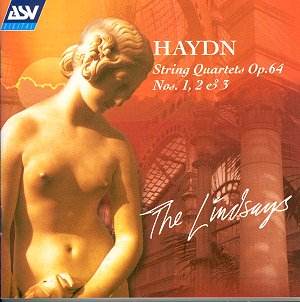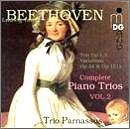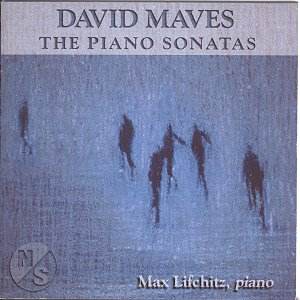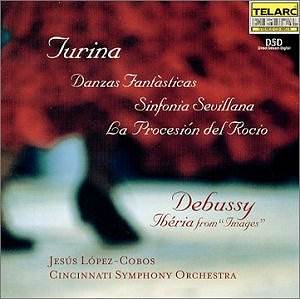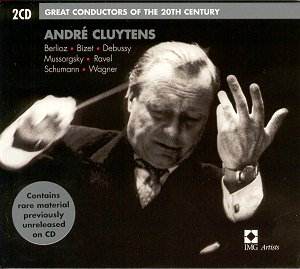 Composer: André Cluytens
Composer: André Cluytens
Works: Bizet: Symphony in C major; Debussy: Images pour orchestre; Ravel: La Valse; Schumann: Manfred Overture; Berlioz: Symphonie Fantastique; Wagner: Lohengrin: Prelude to Act III; Mussorgsky: Boris Godunov: Coronation Scene
Performers: Orchestre National de la Radioffusion Française; Orchestre de la Société des Concerts du Conservatoire; Philharmonia Orchestra; Berlin Philharmonic Orchestra; Orchestre du Théâtre National de l’Opera; Boris Christoff (bass); John Lanigan (tenor)
Recording: 1953-1964, various locations
Label: EMI Classics/IMG Artists
André Cluytens, a luminary of the mid-20th century conducting scene, is renowned for his eloquent interpretations of the French repertoire, yet his versatility extends across the orchestral canon. This two-disc set from EMI Classics offers a rich tapestry of Cluytens’ artistry, featuring a selection of works that not only showcase his interpretative prowess but also highlight the historical milieu in which these recordings were made. With the recording dates spanning from 1953 to 1964, this collection is a testament to Cluytens’ enduring legacy within the orchestral landscape.
The opening selection, Bizet’s Symphony in C major, sets an engaging tone for the collection. Cluytens leads the Orchestre National de la Radioffusion Française with a buoyant energy that captures the youthful exuberance inherent in Bizet’s early work. The clarity of orchestral textures is particularly striking, with the woodwinds emerging with a bright, crisp articulation that complements the lush strings. While the sound may exhibit the limitations of its era, being mono and slightly dated, the musical intent shines through, revealing a conductor who understands the subtleties of phrasing and dynamic shading.
Transitioning to Debussy’s Images pour orchestre, recorded in 1963, Cluytens demonstrates an acute sensitivity to the impressionistic palette that defines the work. The Orchestre de la Société des Concerts du Conservatoire is in superb form, producing a sound that is both expansive and intimate. Particularly noteworthy is the depiction of “Gigues,” where Cluytens deftly balances the ethereal qualities of Debussy’s orchestration with vibrant rhythmic energy. The acoustic of the Salle Wagram enhances the orchestral colors, resulting in a sonorous richness that is beautifully captured in the recording. This performance stands out not only for its technical finesse but also for its emotional depth, embodying the nuanced character of Debussy’s vision.
Ravel’s La Valse, recorded in 1958 with the Philharmonia Orchestra, showcases Cluytens at his most animated. The performance is imbued with a scintillating vibrancy, marked by a keen sense of tempo and phrasing that drives the music forward with exhilarating momentum. The climactic moments are executed with precision, allowing the intricate counterpoint to emerge clearly, while the quieter sections breathe with a languid, almost decadent quality. Cluytens’ interpretative choices here reflect a true understanding of Ravel’s stylistic nuances, and the engineering captures the orchestra’s brilliance with remarkable clarity.
The inclusion of Schumann’s Manfred Overture and Wagner’s Prelude to Act III from Lohengrin reveals Cluytens’ adeptness in the Germanic repertoire. The former, with the Berlin Philharmonic, is characterized by a robust orchestral sound and a deft handling of its dramatic contrasts. Cluytens navigates the work’s emotional landscape with a deft touch, illuminating the intricate orchestration while maintaining a cohesive narrative flow. In the Wagner excerpt, although the sound is less refined than in other selections, Cluytens’ interpretive insight shines through, imbuing the music with a sense of inevitability that effectively prepares the listener for the drama to unfold.
Cluytens’ experience in the operatic realm is particularly evident in the performance of Mussorgsky’s Coronation Scene from Boris Godunov. With Boris Christoff’s commanding bass voice at the forefront, the performance encapsulates the gravitas of the moment. Cluytens’ direction ensures that the orchestral accompaniment enhances the vocal lines without overwhelming them, a testament to his operatic sensibility. The emotional weight of the scene is palpable, and the recorded sound effectively captures the grandeur of the choral forces.
This collection, thoughtfully accompanied by Robert Layton’s insightful essay, serves as both a tribute to André Cluytens’ contributions to the classical canon and as an engaging introduction to his work for those unfamiliar with his discography. Each performance is imbued with a sense of occasion, capturing the artistry of a conductor who navigated the complexities of a diverse repertoire with both authority and sensitivity. The recordings, while occasionally marred by the limitations of their time, reveal a clarity of vision that resonates even in today’s listening landscape. Cluytens’ legacy is one of significant importance, and this compilation affirms his position as a master interpreter capable of bringing forth the very essence of the music he cherished.
